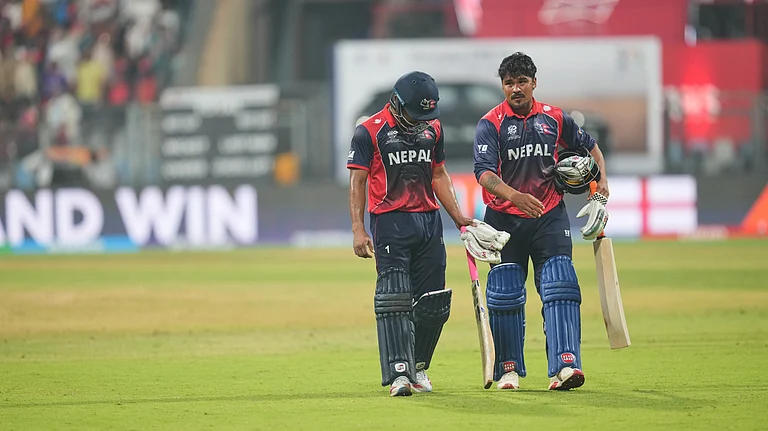SHOULD the government disinvest 51 per cent of its stake in Air India and Indian Airlines within the next five years and seek a lesser role in the running of Indian aviation? That seems to be one of the main suggestions of the draft national policy on aviation finalised and circulated last fortnight by an expert committee set up after Jayanti Natarajan was inducted as minister of state on June 9 this year.
Says the draft: "The government will attempt to reduce its share in the equity of the two carriers with the objective of reaching 49 per cent within a five-year frame. Part of the equity (10 to 15 per cent) will be made available to employees of the airlines. The reduction of government's share to 49 per cent will convert the carriers into non-government companies...(and) they will enjoy larger degree of functional authority."
Also as part of its phased attempt at laissez faire, the policy stipulates that the government's presence on the board of directors will gradually be reduced and insider expertise from the management of national carriers will be given a greater voice on the board. Other directors will be professionals from fields related to the airline industry. The government will not interfere in the day-to-day working of the carriers, but will allow the boards "full freedom". "Whenever any directive is issued which is likely to cause a commercial loss to the carriers, the government shall reimburse the amount of loss so caused," it says.
Though professional, the recommendations are hardly original. These proposals were first made when the Kelkar committee finally submitted its findings in November 1996 after several extensions in what it said was an attempt to develop and prioritise short and long-term strategies to turn around IA. Headed by then Petroleum secretary Vijay Kelkar, it had as experts Deepak Parekh, chairman of HDFC; P.G. Mankad, secretary, Department of Public Enterprises; P.C. Sen, MD of Indian Airlines; and G.K. Agrawal, director, planning.
The Kelkar committee suggested a two-phased turnaround: from 1996-97 to 1998-99 and from 1999-2000 to 2002-03. The recommendations of the new committee are largely an outcome of the first phase of development. According to it, since IA had to be run keeping the 'social objective' in mind as opposed to a purely business agenda, the first phase would be based on capital injection from various sources to cover its accumulated losses, restructuring the balancesheet and placing the airline in a position to tap debt as well as equity sources for its needs. "Fresh funds to an aggregate extent of Rs 920 crore need to be injected in IA. In this context all stake-holders, that is, the government, the airline itself and the employees have to play a decisive role," says the committee.
The government's contribution, it suggests, should be subdivided into subordinated debt of Rs 150 crore, upfront contribution of Rs 200 crore, fresh equity infusion of Rs 125 crore, reduction of aviation turbine fuel subsidy at the level of operations, Vayudoot's liabilities, IA's contribution to the tune of Rs 363 crore till FY 1998-99 and employees' contribution by way of IA offering its equity shares of the face value of Rs 50 crore at par to its employees with a minimum lock-in period of three years.
Predictably, the latest proposals are being treated a little cynically by industry watchers. "It's an ongoing project. It's like putting something on record, while not actually intending to apply it in practice," says an executive, who claims that though the original proposal has come from the government, it'll be the first to back out.
But there are several new points as well. For one, the new recommendations effectively make the entry of the Tata-SIA project impossible by barring foreign airlines from investing in Indian carriers. Yet other observations are interesting. It suggests, for instance, the replacement of the Aircraft Act, 1934, with a new civil aviation act under which the DGCA will give way to an autonomous civil aviation authority. In addition, it proposes the setting up of a civil aviation fund to finance aircraft acquisitions and automatic approval for foreign direct investment up to 76 per cent for construction and upgradation of airports.
For private airlines in the country, the terms are rather stiff. It has made ownership of 20 per cent of the fleet mandatory for private operators which will be subsequently raised to 50 per cent and wet lease (where the aircraft, crew and maintenance is provided by the lessor) will not be allowed beyond three months. To ensure that only financially sound companies enter the sector, minimum capital norms have been imposed. Thus an airline must have a minimum capital base of Rs 10 crore if its fleet consists of aircraft below 40,000 kg (50-seaters). If implemented in right earnest, the policy could go a long way towards opening skies, but given the deep schism in what is proposed and what actually is approved, it may well turn out to be another attempt at soul searching.


























